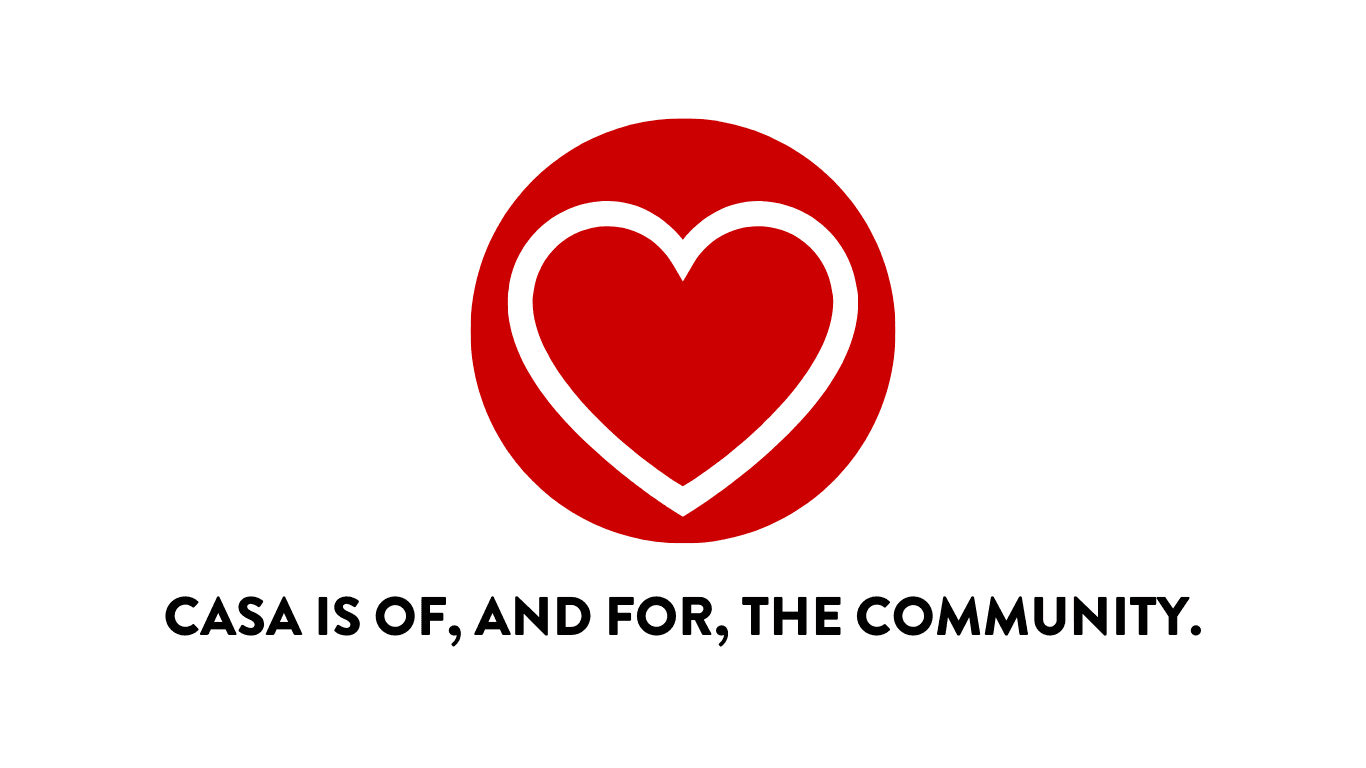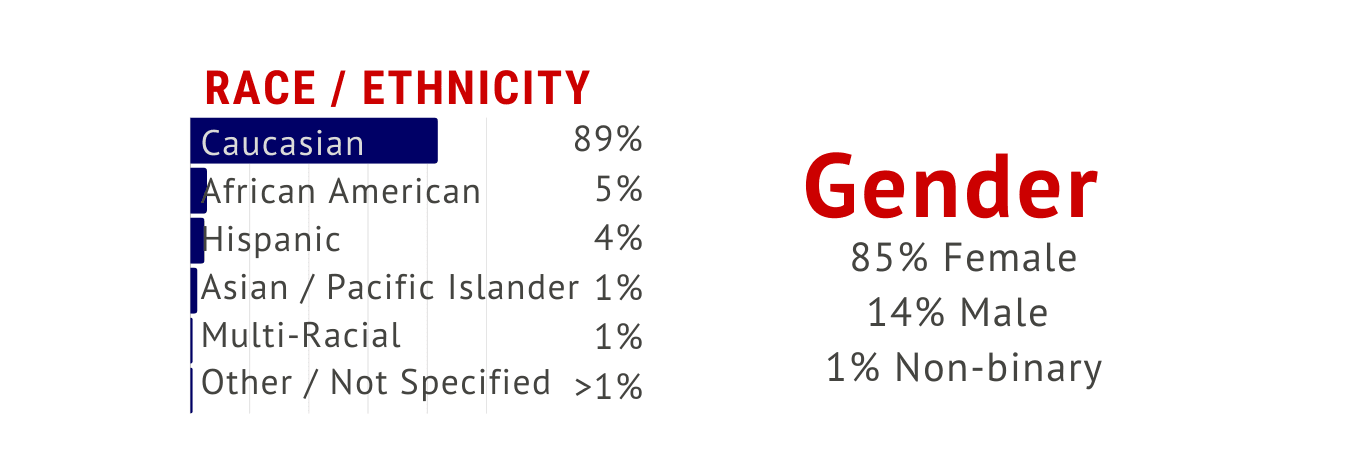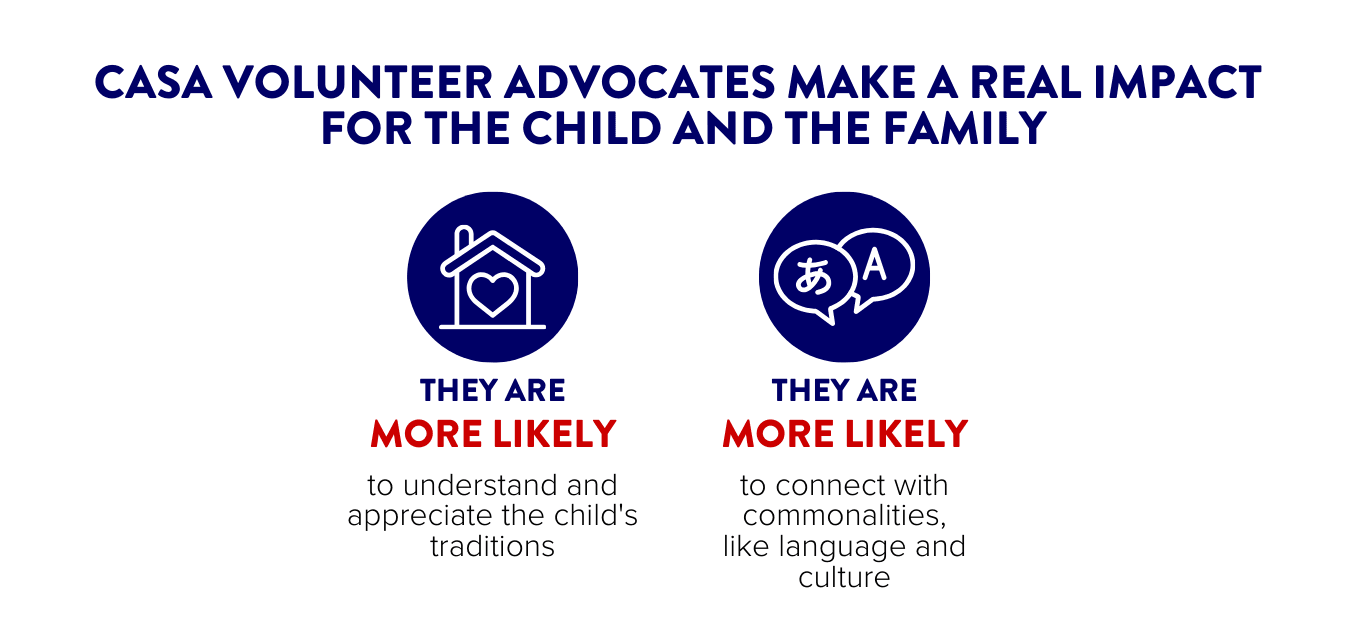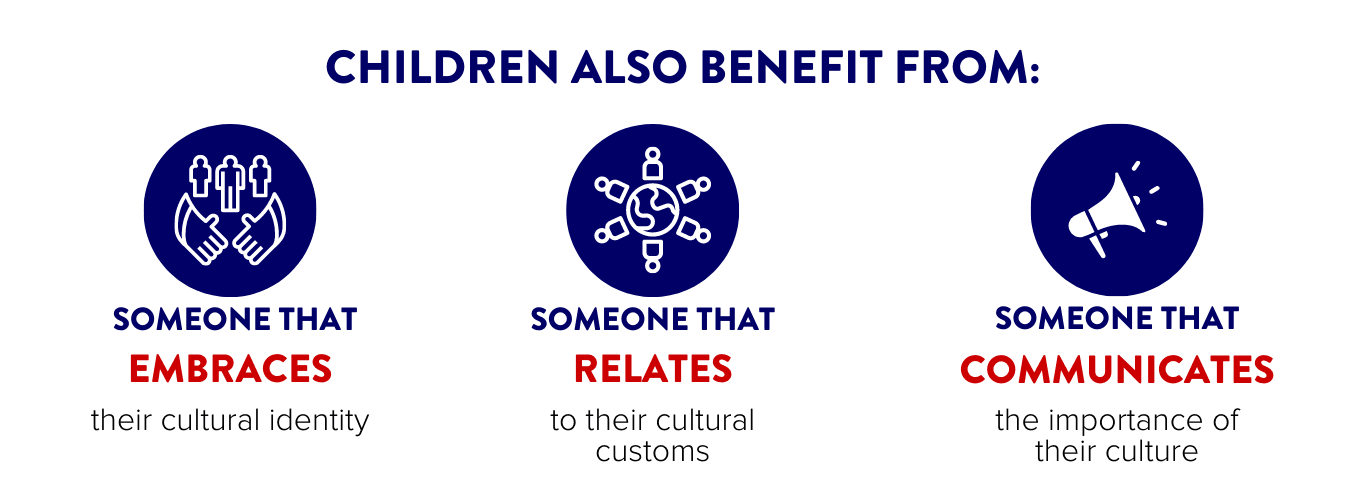Incorporating culture and compassion to help build a better future
The child welfare system is responsible for ensuring the safety, permanency, and well-being of children who have been abused or neglected. Unfortunately, some ethnic groups and demographics (ie: LGBTQIA+ and children who are disabled) are disproportionately represented within this system. These children need Volunteer Advocates who can understand their experiences and amplify their voices to ensure they receive the best possible care and support. In an effort to address this issue, CASA for Douglas County is working with key organizations and leaders in our community to encourage more diverse individuals to join the organization and become Volunteer Advocates.
At CASA for Douglas County we don't just have a mission; we have a responsibility to influence positive change in our community.

What is Disproportionality?
Disproportionality refers to the unequal representation of certain groups within the child welfare system. In Nebraska, Black/African American and Hispanic/Latino children are disproportionately represented. The reasons for this are complex but often related to systemic racism, poverty, and lack of access to resources. They are more likely to be removed from their homes and placed in foster care; they are more likely to experience longer stays in foster care and less likely to be reunified with their families.

Source: CASA for Douglas County 2022-2023 Annual Report
What is CASAs role in the child welfare system?
Court Appointed Special Advocates (CASAs) play a critical role in the child welfare system. These CASAs are appointed by judges to advocate for the best interests of children who are impacted by the child welfare system. They work to amplify the voices of children, ensuring children are safe and their needs are being met. Diverse Volunteer Advocates are particularly important in the child welfare system. These individuals can provide cultural competence, empathy, and understanding of the unique challenges faced by children and their families. They can also serve as positive role models and advocate for change within the system.
“It is important to value family, culture, and the community of the children impacted by the child welfare system,” says Kimberly C. Barnes, Executive Director. “Therefore, CASA for Douglas County is intentional about prioritizing the recruitment of Volunteer Advocates to reflect the children we serve.”


CASA Volunteer Advocates play a critical role in ensuring that children impacted by the child welfare system receive the support and care they need. Diverse CASAs are particularly important, as most of the children we serve face unique challenges that require culturally aware individuals. By working to address disproportionality and encouraging diverse advocacy, we can build a strong and equitable advocate base that children and families can relate to, and provide better support and advocacy for all children in the child welfare system.

